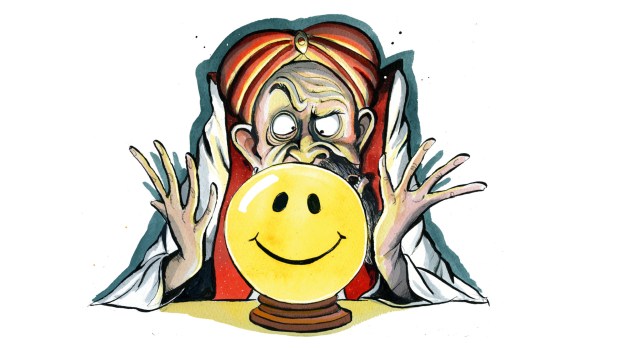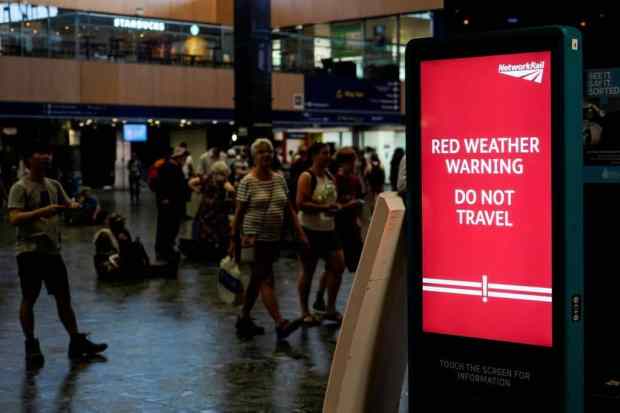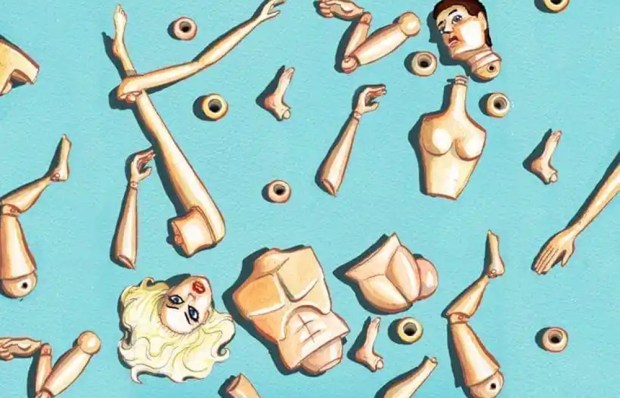When A-level results are published next week, we will find out if the government has made any progress in stemming exam grade inflation. As always, some candidates will celebrate while others will be disappointed. This year, though, the latter group is expected to be more numerous because exam boards are supposed to be clamping down on the implausibly high grades awarded during the two years when school exams were suspended due to lockdowns.
Anyone looking solely at exam grades without other information to hand might wonder: what was it about Covid that appeared to boost the educational attainment of so many 18-year-olds? In 2019, the last normal year, 76 per cent of A-level entries were awarded grades A* to C. But the next year, after the first lockdowns and ‘home learning’, this rose to 88 per cent – and stayed there last year, after even more disruption. The proportion of entries awarded A or A* soared even more noticeably, from 26 per cent to an astonishing 45 per cent.
How on earth could the closing of schools have coincided with an explosion of educational excellence? The number achieving three A*s quadrupled to 12,945. In reality, of course, candidates had not improved their performance during lockdown: their high grades were the consequence of a panicked conspiracy by educational authorities. Rather than admit to the damage inflicted by school closures, they tried to cover it up by awarding far more high marks.
It’s quite a scandal. Almost half of parents with children sitting GCSEs or A-levels reported that their school provided no ‘remote learning’ in the first lockdown when exams were cancelled. Regional inequality was rife: students in London were almost three times as likely to have online learning as those in the East Midlands. Students in the North-East were half as likely as those in the rest of the country to receive offline work.
To this day, these failings are blamed on the pandemic. But there has been negligible grade inflation in Sweden, which prioritised the needs of the young and kept schools open – and ended up with one of Europe’s lower Covid death tolls. A lesson lies therein. Rather than learn this lesson and confront the damage of lockdown, however, the denials continue. Grade inflation is still used by politicians who supported lockdown as an excuse to look the other way.
Abolishing exams abolishes the right of pupils to prove they can rise by dint of their own efforts – and above family circumstances. But because every major party backed lockdown, no one cries foul. Failure to recognise such mistakes means not only a risk of repeating them the next time there is a pandemic; it also means failure to correct the damage.
Next week’s exam results ought to start a national debate. How far have results drifted from actual attainment? Has help been given to the pupils who need it most? Or are they just being ushered from GCSE to A-level, from A-level to university, on the cynical premise that nothing has really changed?
The government has already announced it needs two years to get the grading system back to where it was before the pandemic – so this year the grade boundaries will be set at a midway point between the 2019 and 2021 levels. But even imposing a moderate cut in inflated grades will not be politically easy. In Scotland, where results came out this week, the grade gap between rich and poor almost doubled as a result of a cut to inflated grades. At the same time, the average private school pupil can now expect three As at A-level.
Last year, the Prime Minister appointed Sir Kevan Collins as ‘education recovery commissioner’ to produce a plan to make up for those missing months of education. Sir Kevan quit four months later in protest at how little money had been allotted to the task. His departure was followed by the elevated exam grades of last summer and the matter was largely brushed aside.
Until 1987, grade inflation was not a problem. The number of A grades was set at a certain proportion so (for example) the best 10 per cent were awarded a top grade come what may. That system was also unfair in its own way, as it failed to recognise genuine improvements in standards over the years. But when teacher-assessed grades were used during the pandemic, almost half of students were handed As – making a mockery of the system. In an economy where earning power is closely linked to education, low school standards stymie life chances.
Boris Johnson was always reluctant to talk plainly about this subject due to his role in imposing lockdowns. His successor will be in a position to look at it afresh. Rishi Sunak or Liz Truss can usher in a new era of candour and openly admit what research unequivocally shows: that, for most students, learning suffered in lockdown.
An all-out campaign should have been started to repair this damage after one year not two. But a new prime minister can, at the very least, make sure the timetable does not slip any further.
Got something to add? Join the discussion and comment below.
Get 10 issues for just $10
Subscribe to The Spectator Australia today for the next 10 magazine issues, plus full online access, for just $10.
You might disagree with half of it, but you’ll enjoy reading all of it. Try your first month for free, then just $2 a week for the remainder of your first year.














Comments
Don't miss out
Join the conversation with other Spectator Australia readers. Subscribe to leave a comment.
SUBSCRIBEAlready a subscriber? Log in